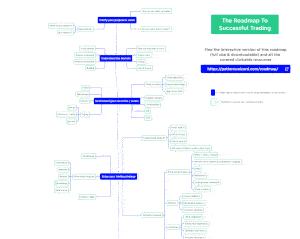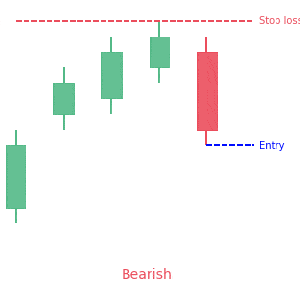You might wonder which investment type is better for you when it comes to blue chip stocks vs. index funds. One thing is clear and that is it totally depends on your investment strategy, goals, and personal preferences. You should invest your money in assets that align with your trading style. However, only by learning about all investment instruments available, can you make an educated decision.
In order to help you make an informed investment decision between blue chip stocks and index funds, we are going to help you. In this article, we are going to explain in detail how blue chip stocks differ from index funds. Furthermore, we shall also help you understand the pros and cons of both types of investments. So, let’s start right away.
Blue chip stocks vs. index funds – the differences
Learning all about blue chip stocks vs. index funds can help you choose between these types of investments with ease. The first and most important aspect is to learn about the differences between them. Here are the differences.
Structure
Blue Chip Stocks and index funds are structurally different. In fact, they are totally different types of investments. As you know, blue chip stocks are stocks of highly valuable and prestigious companies. These companies have been in existence for years and have a long history of success. Blue chip stocks are highly valued among investors all across the globe. So, how are these stocks structurally different? Firstly, owning blue chip stocks means having ownership of the company. Conversely, index funds refer to portfolios designed to mimic the components of a financial market index such as the S&P 500. It consists of stocks, and bonds, or may consist of both stocks and bonds.
Secondly, blue chip stocks and index funds are also structurally different on the basis of how they are made available to investors. As you know, a registered company issues stocks for raising capital. You can buy and sell stocks through any brokerage firm Contrarily, hedge funds manage index funds. Fund managers make portfolios that match or track a particular index. Investors can buy shares of those portfolios. Hedge funds charge fees or commissions for their service.
Risk
You cannot ignore the risk associated with stocks despite the fact that blue chip stocks are low-risk investments. This is because several factors can impact a company’s performance. Therefore, you should never ignore risk even when investing in stocks, even in the top companies of the world. Whereas index funds consist of a pool of stocks, they are comparatively less risky.
Liquidity
Blue chip stocks are easier to buy or sell because of their high demand and high liquidity. Contrarily, there are numerous factors that decide the liquidity of index funds. You may have to wait to sell your index fund investment.
Advantages and disadvantages of investing in blue chip stocks vs. index funds
The following are the advantages and disadvantages of investing in blue chip stocks.
Advantages of blue chip stocks
- Stocks of highly popular, valuable, and trusted companies with strong financial health
- Pay dividends consistently
- Higher demand and liquidity
- You have full control of your investment portfolio
- Commission-free stock trading on several brokerage firms
Disadvantages of blue chip stocks
- Higher capital requirements because of high share prices
- Lower growth potential because companies are already established
- Make diversification difficult because of high stock prices
Advantages of index funds
- Offer higher capital appreciation as compared to individual stocks
- Allow diversification and that in turn ensures low risk
- Low capital requirements
Disadvantages of ETFs
- Low liquidity as compared to blue chip stocks
- Commissions and management fees can be high
Which one is better for you?
As we have mentioned before, it depends on your investment strategy, goals, and personal preferences. As far as blue chip stocks vs. index funds are concerned, they both are good investments. However, they have certain advantages as well as disadvantages. You can choose between them after understanding the pros and cons and the differences between the two. If possible, the best strategy is to design a portfolio consisting of both blue chip stocks and index funds. It will help you taste the advantages of both types of investments.
 Good Trading requires the Best Charting Tool!
Good Trading requires the Best Charting Tool!

 We loved Marwood Research’s course “Candlestick Analysis For Professional Traders“. Do you want to follow a great video course and deep dive into 26 candlestick patterns (and compare their success rates)? Then make sure to check this course!
We loved Marwood Research’s course “Candlestick Analysis For Professional Traders“. Do you want to follow a great video course and deep dive into 26 candlestick patterns (and compare their success rates)? Then make sure to check this course!